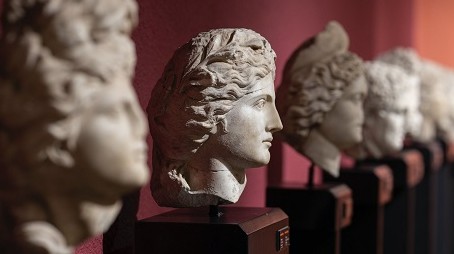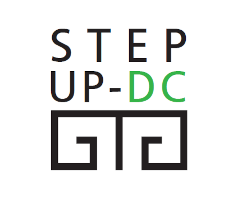Session 7B, HISTORY - UON
STEPUP-DC Project

Course DescriptionBasic Topics
- Traditional History Education Vs the ‘new’ context of History Education.
- What kind of citizens should History Education envisage?
- The vision, the mission, the goals, and the components of History Education in cultivating EDC/HRE.
- Challenges to the implementation of EDC/HRE in History Education.
- Recommended teaching methodology in cultivating EDC/HRE.
- Current trends in history teaching in cultivating EDC/HRE.
- Recommendations for history teaching to promote EDC/HRE.
Duration
The duration of the session is 9 hours (3 reading+3 learning+3 working/practicing)
Objectives
- To enable students to recognise opportunities for the implementation of EDC/HRE pedagogies in History Education.
- To offer students an overview and support them in developing a critical understanding of potential challenges in the implementation of EDC/HRE in History Education.
- To engage students in integrating EDC/HRE pedagogies in their history teaching practice and developing their own relevant teaching methods.
Learning outcomes
- Students will be able to critically analyse the ways in which key concepts related to citizenship education, democratic culture, and intercultural dialogue may become integrated in History Education lessons;
- Students will be able to develop and implement pertinent teaching methodologies in History lessons to cultivate the goals of EDC/HRE.
- Students will be able to use historical sources in their teaching in order to promote the goals of EDC/HRE.
Outcomes and CDC
- Values
- Valuing cultural diversity
- No 2.8 Promotes the view that one should always strive for mutual under-standing and meaningful dialogue between people and groups who are perceived to be “different” from one another.
- Valuing democracy, justice, fairness, equality and the rule of law
- No 3.12 Argues that schools should teach students about democracy and how to act as a democratic citizen
- Attitudes
- Tolerance of ambiguity
- No 9.55 Expresses a desire to have his/her own ideas and values challenged
- Civic-Mindedness
- No 6.37 Exercises the obligations and responsibilities of active citizenship at either the local, national or global level.
- Self-Efficacy
-
No 8.49 Shows confidence that he/she knows how to handle unforeseen situations due to his/her resourcefulness
- Skills
- Analytical and critical thinking skills
- No 11.69 Can use explicit and specifiable criteria, principles or values to make judgments
- Skills of Listening and Observing
- No 12.70 Listens carefully to differing opinions
- Traditional History Education Vs the ‘new’ context of History Education.
- What kind of citizens should History Education envisage?
- The vision, the mission, the goals, and the components of History Education in cultivating EDC/HRE.
- Challenges to the implementation of EDC/HRE in History Education.
- Recommended teaching methodology in cultivating EDC/HRE.
- Current trends in history teaching in cultivating EDC/HRE.
- Recommendations for history teaching to promote EDC/HRE.
The duration of the session is 9 hours (3 reading+3 learning+3 working/practicing)
- To enable students to recognise opportunities for the implementation of EDC/HRE pedagogies in History Education.
- To offer students an overview and support them in developing a critical understanding of potential challenges in the implementation of EDC/HRE in History Education.
- To engage students in integrating EDC/HRE pedagogies in their history teaching practice and developing their own relevant teaching methods.
- Students will be able to critically analyse the ways in which key concepts related to citizenship education, democratic culture, and intercultural dialogue may become integrated in History Education lessons;
- Students will be able to develop and implement pertinent teaching methodologies in History lessons to cultivate the goals of EDC/HRE.
- Students will be able to use historical sources in their teaching in order to promote the goals of EDC/HRE.
- Values
- Valuing cultural diversity
- No 2.8 Promotes the view that one should always strive for mutual under-standing and meaningful dialogue between people and groups who are perceived to be “different” from one another.
- Valuing democracy, justice, fairness, equality and the rule of law
- No 3.12 Argues that schools should teach students about democracy and how to act as a democratic citizen
- Valuing cultural diversity
- Attitudes
- Tolerance of ambiguity
- No 9.55 Expresses a desire to have his/her own ideas and values challenged
- Civic-Mindedness
- No 6.37 Exercises the obligations and responsibilities of active citizenship at either the local, national or global level.
- Self-Efficacy
-
No 8.49 Shows confidence that he/she knows how to handle unforeseen situations due to his/her resourcefulness
-
- Tolerance of ambiguity
- Skills
- Analytical and critical thinking skills
- No 11.69 Can use explicit and specifiable criteria, principles or values to make judgments
- Skills of Listening and Observing
- No 12.70 Listens carefully to differing opinions
- Analytical and critical thinking skills
A series of resources that the student teacher must study in this session and a series of additional resources for further study.
A full paper and additional e-lessons on the topics of the session and additional interactive presentation of the materials, for the student teachers to study all the materials in a row.
A series of authentic, up to date and relevant activities with their accompanying materials, which deliver the intended learning outcomes of the session and are carried out face to face or E-learning with groups of student teachers.
Several types of questions to evaluate how much the student teachers have learned throughout the session (reading material, learning material and workshop).
